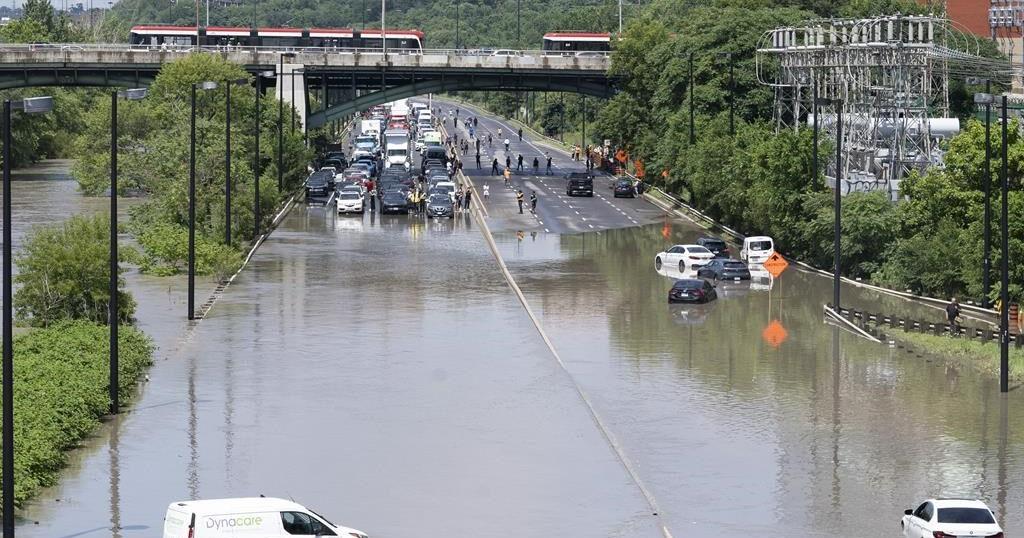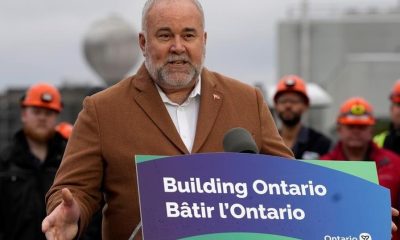Today’s dispute about raising the government’s borrowing limit might produce an anesthetizing boredom because such contretemps occur frequently. And because this one probably will end, as 11 of the 14 since 2008 have (including three during the previous administration), with other measures attached to an increase of the limit. Some people, however, who are fluent in today’s vocabulary of catastrophe (the planet is boiling, democracy is dying, etc.) think there is a risk of a default that will blow prosperity to rags and atoms.
Politics
Maybe the looming debt ceiling disaster is really just politics as usual
Actually, there is a name for what is occurring: politics. Republicans are resisting progressives’ usual three priorities: unrestrained spending, unconstrained presidential power, and unlimited deference by Congress to the administrative state’s regulatory agencies.
House Republicans have been prone to fractiousness. And to fantasies, e.g., promising to balance the budget in 10 years, which the Committee for a Responsible Federal Budget says would require cutting nondefense discretionary spending 85 percent. Now, however, they are united and realistic. They have coupled raising the debt ceiling with some measures as moderate as they are sensible.
One is restraint in the rate of increase of the small (15 percent) discretionary nondefense spending portion of the budget. The House GOP proposal: 1 percent annual increases after going all the way back to the spending level of — brace yourself — 2022.
House Republicans’ most important provision is designed to partially revive the much diminished — the largely self-diminished — role of the legislative branch. It would combat the leakage of legislative branch responsibilities to the executive branch. It would require Congress to participate, more than it often wants to, in governing. The provision stipulates that all “major” regulations (those with annual economic impacts of at least $100 million) shall not go into effect until Congress takes responsibility by explicitly approving them.


This assertion of congressional power would combat executive aggrandizement and somewhat reverse the marginalization of Congress. It accords with Republicans’ refusal to comply with President Biden’s ukase to Congress regarding the borrowing limit: Stay out of governing. Pipe down and raise the ceiling unconditionally.
Biden’s need to climb down from his refusal to negotiate with the legislature — which enacted the debt ceiling — is related to the fact that he is the most rhetorically clumsy president since the invention of broadcasting. In a 16-month span, he has given three of the worst speeches — shrill, divisive, untethered from facts — in the 234-year history of presidential rhetoric.
Atlanta, Jan. 11, 2022: Georgia’s new voting laws are “Jim Crow 2.0” and “voter suppression.” (Ten months later, Georgians broke the state’s midterm turnout records.)
Philadelphia, Sept. 1, 2022: The nation’s “foundations” are threatened by extremists who “do not believe in the rule of law.” (This, from a president repeatedly reprimanded by the Supreme Court for his extralegal, anti-constitutional executive highhandedness regarding vaccine mandates, rent moratoriums, the Environmental Protection Agency presuming to redesign the electric power industry, and — perhaps, soon — student loan forgiveness. So far, Biden has not uttered a peep against progressives’ itch to delegitimize the Supreme Court by enlarging it.)
To Howard University, May 13: Assaults on “our right to vote” are coinciding with Black history “being erased” by a “ferocious pushback” from “sinister” forces so powerful they are achieving erasure despite the vigilance of Biden, democracy’s savior. (Spoken 10 weeks after Black History Month.)
The sound you hear is the rustling of chickens coming home to roost. A critical mass of Americans probably has come to the conclusion that Biden does not mean what he says. The public’s cynicism does not matter much when he is just emitting noise about how the survival of what George Washington founded and Abraham Lincoln preserved now depends on … him. His flapdoodle is, however, important when he says: Trust me, I will negotiate serious spending restraints and other reforms — but only after Republicans forfeit their leverage regarding the debt ceiling.
Progressives’ unvarying agenda is to concentrate power in Washington, to concentrate Washington power in the executive branch, and to concentrate ever more of that power in administrative agencies that are effectively exempt from being accountable to people who are accountable to voters. Hence progressives’ impatience with the Constitution and its separation of powers.
This rivalry between the branches usually gives each party the power to stymie the other sufficiently to compel compromise. Unless the president considers this institutional architecture unreasonable, even unintelligible. Ohio’s John Sherman (1823-1900), senator and secretary of state, warned us: “The Constitution provides for every accidental contingency in the executive — except a vacancy in the mind of the president.”

Politics
New Brunswick election candidate profile: Green Party Leader David Coon

FREDERICTON – A look at David Coon, leader of the Green Party of New Brunswick:
Born: Oct. 28, 1956.
Early years: Born in Toronto and raised in Montreal, he spent about three decades as an environmental advocate.
Education: A trained biologist, he graduated with a bachelor of science from McGill University in Montreal in 1978.
Family: He and his wife Janice Harvey have two daughters, Caroline and Laura.
Before politics: Worked as an environmental educator, organizer, activist and manager for 33 years, mainly with the Conservation Council of New Brunswick.
Politics: Joined the Green Party of Canada in May 2006 and was elected leader of the New Brunswick Green Party in September 2012. Won a seat in the legislature in 2014 — a first for the province’s Greens.
Quote: “It was despicable. He’s clearly decided to take the low road in this campaign, to adopt some Trump-lite fearmongering.” — David Coon on Sept. 12, 2024, reacting to Blaine Higgs’s claim that the federal government had decided to send 4,600 asylum seekers to New Brunswick.
This report by The Canadian Press was first published Sept. 19, 2024.
The Canadian Press. All rights reserved.
Politics
New Brunswick election profile: Progressive Conservative Leader Blaine Higgs

FREDERICTON – A look at Blaine Higgs, leader of the Progressive Conservative Party of New Brunswick.
Born: March 1, 1954.
Early years: The son of a customs officer, he grew up in Forest City, N.B., near the Canada-U.S. border.
Education: Graduated from the University of New Brunswick with a degree in mechanical engineering in 1977.
Family: Married his high-school sweetheart, Marcia, and settled in Saint John, N.B., where they had four daughters: Lindsey, Laura, Sarah and Rachel.
Before politics: Hired by Irving Oil a week after he graduated from university and was eventually promoted to director of distribution. Worked for 33 years at the company.
Politics: Elected to the legislature in 2010 and later served as finance minister under former Progressive Conservative Premier David Alward. Elected Tory leader in 2016 and has been premier since 2018.
Quote: “I’ve always felt parents should play the main role in raising children. No one is denying gender diversity is real. But we need to figure out how to manage it.” — Blaine Higgs in a year-end interview in 2023, explaining changes to school policies about gender identity.
This report by The Canadian Press was first published Sept. 19, 2024.
The Canadian Press. All rights reserved.
Politics
Climate, food security, Arctic among Canada’s intelligence priorities, Ottawa says

OTTAWA – The pressing issues of climate change and food security join more familiar ones like violent extremism and espionage on a new list of Canada’s intelligence priorities.
The federal government says publishing the list of priorities for the first time is an important step toward greater transparency.
The government revises the priorities every two years, based on recommendations from the national security adviser and the intelligence community.
Once the priorities are reviewed and approved by the federal cabinet, key ministers issue directives to federal agencies that produce intelligence.
Among the priorities are the security of global health, food, water and biodiversity, as well as the issues of climate change and global sustainability.
The new list also includes foreign interference and malign influence, cyberthreats, infrastructure security, Arctic sovereignty, border integrity and transnational organized crime.
This report by The Canadian Press was first published Sept. 19, 2024.
The Canadian Press. All rights reserved.
-

 Politics13 hours ago
Politics13 hours agoNew Brunswick Premier Blaine Higgs expected to call provincial election today
-
Media12 hours ago
Sutherland House Experts Book Publishing Launches To Empower Quiet Experts
-

 Sports8 hours ago
Sports8 hours agoArch Manning to get first start for No. 1 Texas as Ewers continues recovery from abdomen strain
-

 Investment11 hours ago
Investment11 hours agoCanada’s Probate Laws: What You Need to Know about Estate Planning in 2024
-

 News24 hours ago
News24 hours agoFlames re-sign defenceman Ilya Solovyov, centre Cole Schwindt
-

 News13 hours ago
News13 hours agoQuebec won’t fund graphite mine project tied to Pentagon; locals claim ‘victory’
-

 Politics11 hours ago
Politics11 hours agoNew Brunswick Premier Blaine Higgs kicks off provincial election campaign
-

 Sports8 hours ago
Sports8 hours agoFormer Canada captain Atiba Hutchinson tells his story in ‘The Beautiful Dream”


























